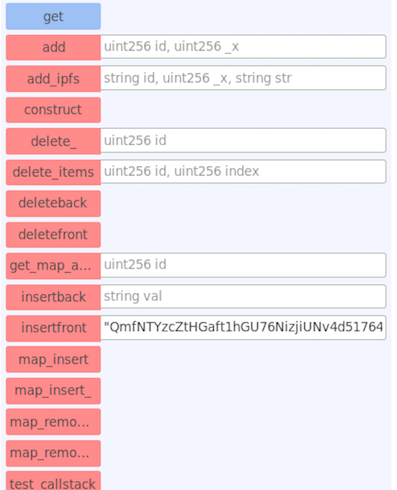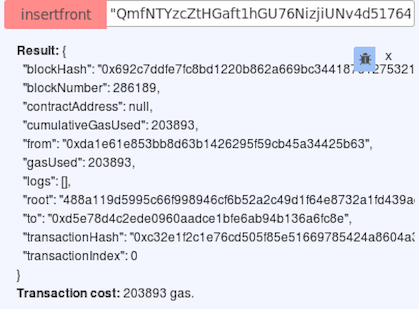I have my private Ethereum Network.
Inside Solidity Browser:
- From Web3 Provider I have connected to my local ethereum node.
- I have pressed
createbutton and successfully deployed my contract. - Now I could call any function inside my contract and all deployed without having any problem.
As an example: I have deployed insertfront(string val) transaction inside Solidity Browser (To get mined takes around a minute). Gas costs is 203893.
Inside Geth:
- Connect into private ethereum network.
Obtain address and abi (located inside the interface box) from the Solidity Browser that will point the deployed contract.

var mycontract = eth.contract(abi).at(address)
mycontract
{
...
insertfront: function(),
allEvents: function(),
construct: function(),
delete_: function(),
delete_items: function(),
deleteback: function(),
deletefront: function(),
get: function(),
get_: function(),
get_map: function(),
...
}
mycontract.deletefront( {from: eth.accounts[0]} )//This works inside geth and function does what it has to do. Transaction mines and deploys. deletefront() function's gas usage is 41920.But when I call
insertfront(string val)function inside geth (please not that transaction has costed 203893 gas inside Solidity Browser), it never deploys or mines in my blockchain (I have waited hours but no help).> mycontract.insertfront("some_string", {from: eth.accounts[0]} ) "0x7048278dcdb02c02894082af541c73ad6a8e0e37cf1ab90ac914c58cc2d2f983"
//But it has no affect and did not done the what function has to do.
[Q] Why function that is deploy inside Solidity browser does not deployed inside geth? Could it be because usage of high gas amount for a function?
Thank you for your valuable time and help.


